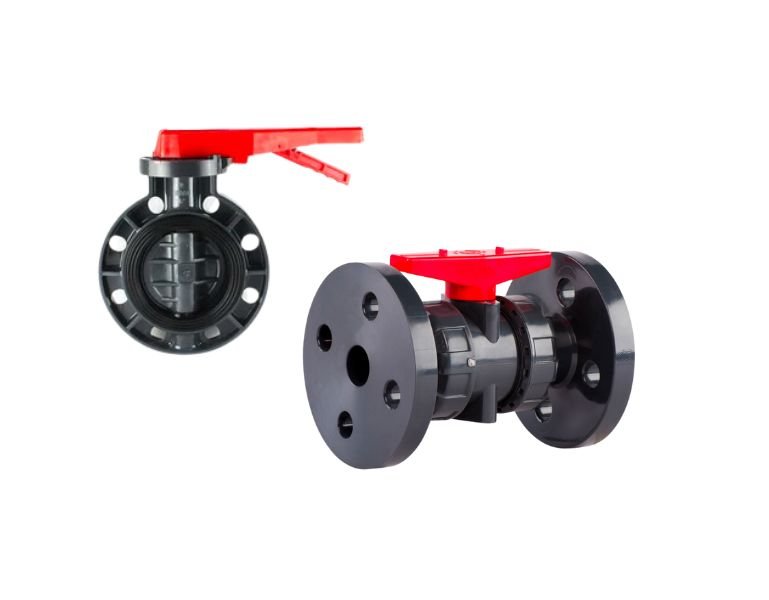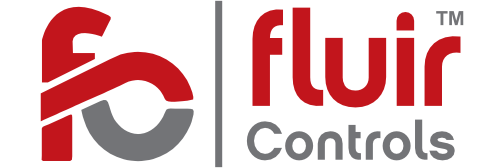Fluir Controls
UPVC VALVE

Advantage:
* Smooth Opening & Closing thanks to a lower torque * 100% pure virgin material, CaCO3 free ( Chalk)
* UV resistant powder added
* 100% pressure testing before leaving the factory
* Can be assembled with Pneumatic | Electric Actuators
Standard
MOC - UPVC, CPVC, PP, PVDF
Pressure Rating - 150 #
End Connection -Flanged End, Screwed, socket, Union, Wafer type.
Flange Drilling - As per ANSI B 16.5, 150 #
Face To Face - As per ANSI B 16.10
Operation - Manual Hand Lever Operated
“ UPVC (Unplasticized Polyvinyl Chloride) valves are a type of valve made from rigid PVC material that does not contain plasticizers, making it a strong and durable option for various applications. UPVC valves are commonly used in plumbing, water treatment, irrigation systems, and other industries where resistance to corrosion, chemicals, and pressure is required.
Material: UPVC valves are made from rigid polyvinyl chloride (PVC) that does not contain plasticizers, which makes them resistant to chemical corrosion and provides excellent strength and durability.
Corrosion resistance: UPVC valves are highly resistant to corrosion, making them suitable for use in environments where exposure to corrosive substances or aggressive chemicals is common. They can withstand a wide range of acids, alkalis, and other corrosive fluids.
Lightweight: UPVC valves are lightweight compared to metal valves, making them easy to handle, install, and maintain. Their light weight also reduces stress on piping systems and supports.
Smooth flow path: UPVC valves have a smooth interior surface that minimizes flow resistance and pressure drop, allowing for efficient flow of fluids through the valve.
Excellent chemical resistance: UPVC valves exhibit high resistance to a wide range of chemicals, including acids, bases, salts, and many organic solvents. This chemical resistance makes them suitable for applications where exposure to aggressive fluids is expected.
Pressure rating: UPVC valves typically have a lower pressure rating compared to metal valves. They are commonly used in low to medium pressure applications, such as residential plumbing systems and irrigation networks.
Temperature limitations: UPVC valves have temperature limitations, and their performance may be affected at high temperatures. They are generally suitable for operating temperatures ranging from 0°C to 60°C (32°F to 140°F).
Cost-effective: UPVC valves are often more affordable than metal valves, making them a cost-effective solution for various applications.
When selecting a UPVC valve, it is important to consider the specific requirements of your application, including pressure rating, temperature range, chemical compatibility, and flow characteristics. Proper installation, regular inspection, and adherence to manufacturer guidelines are essential to ensure the optimal performance and longevity of UPVC valves




